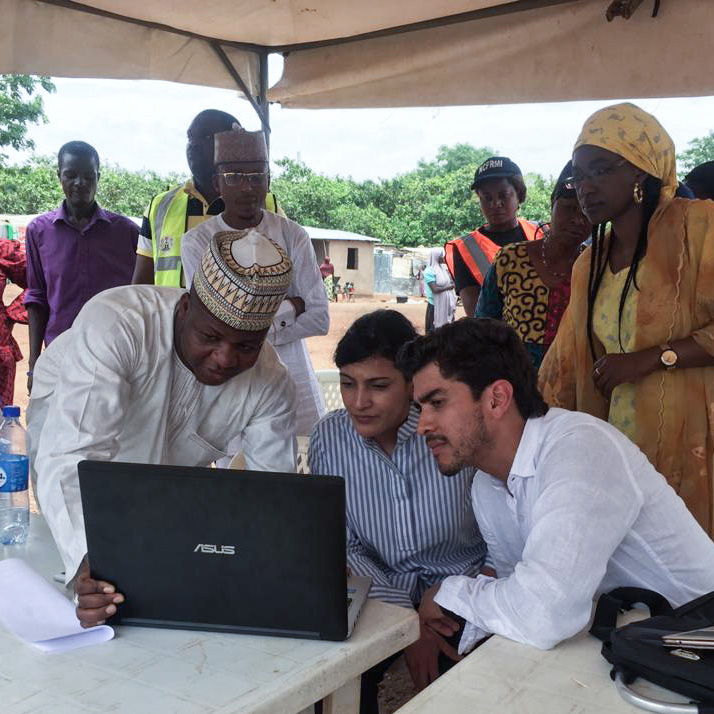
Guided by the executive committee and advisory group, JIPS’ passionate and skilled team makes its global work possible. The organisation has two core units with dedicated management positions – field support & capacity building, and information management & innovation – and further staff working in coordination & management, communications & advocacy and grants & budget management.
JIPS’ team is guided by three core values:
The coordination & management team is responsible for JIPS’ overall leadership. The cross programme unit, with their expertises in providing policy and technical advisory services and in grants and budget management, supports JIPS across the different units and the various projects.

Corina works across JIPS’ core units and in collaboration with its coordinator to support on strategic partnership building and nurturing, fundraising, and management processes. She also oversees JIPS’ communications and issue advocacy efforts as well as the organization’s branding.
JIPS’ Heads of Programme Implementation oversee its country support and service delivery to partners at the national and subnational levels, from government entities, UN agencies, NGOs, and other actors across the humanitarian, development, and peacebuilding realm.

Margharita coordinates the delivery of JIPS’ technical advice and capacity-building support to field partners, and handles requests for its services. She also helps to expand its practices by refining knowledge and tools in specialised areas, and provides direct support to country operations.

Oscar leads the development, implementation and monitoring of JIPS 2021-2023 strategy, and promotes innovation as a modus operandi and cogitandi. He oversees the development and maintenance of JIPS’ methods, tools and training, contributing to JIPS’ role as global hub for profiling.
JIPS’ professionals are experienced at bridging silos, mediating collaboration, and building consensus between
diverse stakeholders at the national and subnational levels: From government officials to displacement-affected
communities, to humanitarian, development, and peace (HDP) actors including from civil society. The team also hold varied technical and policy expertise that enables them to work as “neutral brokers” across the data value chain and tailor their assistance to specific country needs: From addressing evidence gaps on internal displacement, such as through joint profiling and durable solutions analysis, to supporting the coherence of a larger national data ecosystem.

Andrés supports governments, humanitarian and development actors in the Americas region with technical support for coordinating collaborative data collection and analysis. He contributes to developing and refining participatory tools and processes as well as fundamental reflections on turning data into action. Andrés brings in a rich professional background including experience working with diverse partners. Check out this interview with Andrés to learn more.

Sarah contributes technical support for JIPS’ work on the International Recommendations on IDP Statistics (IRIS), including the coordination of capacity building workshops, the development of methodological papers and the preparation and implementation of profiling exercises.

Jonas has coordinated participatory multi-stakeholder processes in the Philippines (2019-2020) and Sudan (2021-2022) to collect and use data to inform Durable Solutions with displaced communities. He manages JIPS’ Collaborative Leadership Programme and supports its other training and capacity building efforts. Jonas’ work is driven by the passion to support individuals and organisations to work better together – mediation, non-violent communication, and Joint Analysis are essential tools he is using to support partners to collaborate around data.